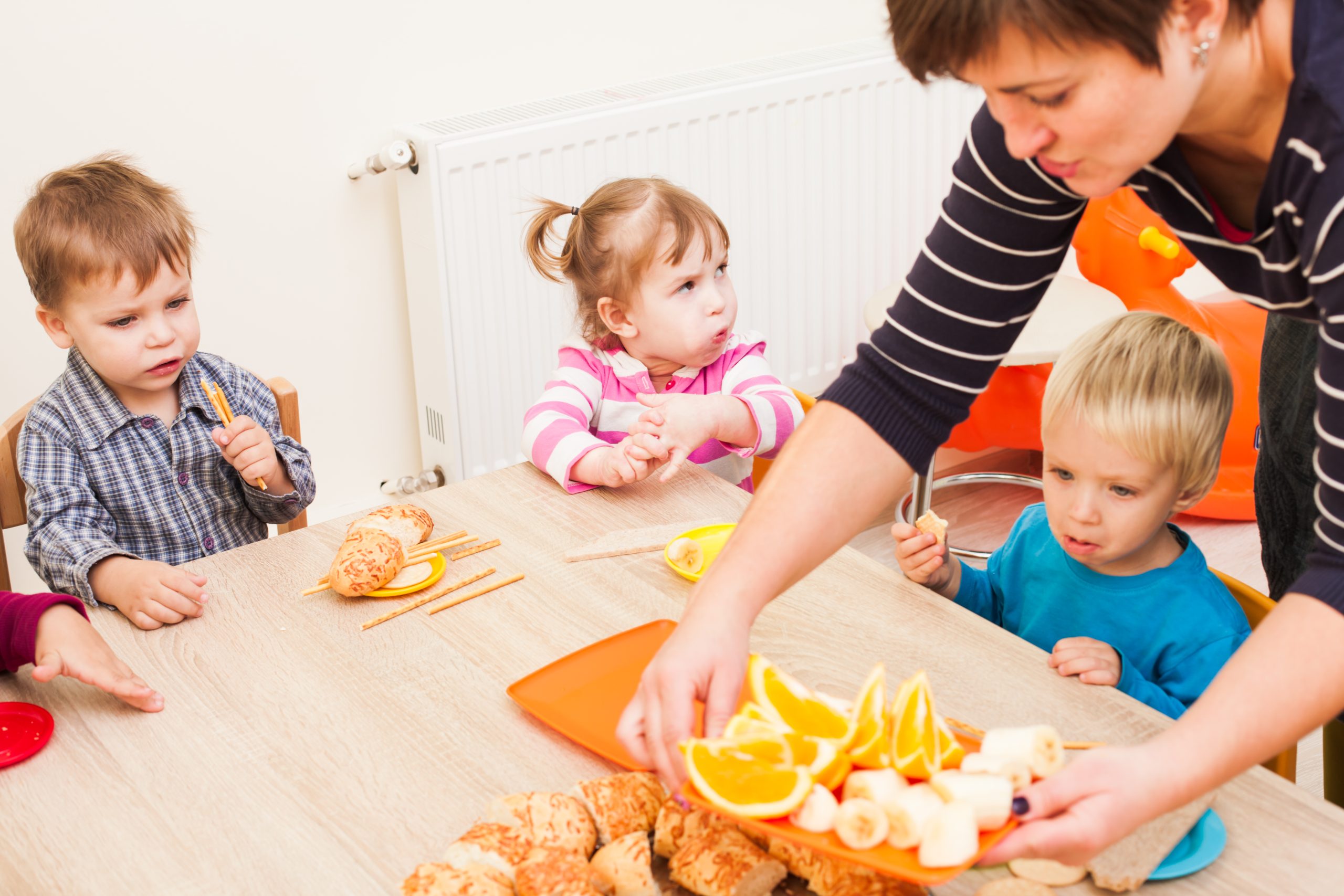A project aiming to improve the quality of food served to children in Danish day care has met with success and is now being expanded.
Childminders do it all. They are educators and caregivers, playmates and cleaners. Somewhere in all that, they plan, shop for and prepare several meals every day. Many childminders want to provide healthy food, but often, just getting something on the table – and some of it into mouths – is a victory.
But with more than 25,000 children aged 0-2 cared for by childminders in Denmark – a quarter of all those enrolled in day care in this age group – and this period being so critical to a child’s physical health and relationship with food later on, this challenge cannot be ignored.
A pilot project led by the Danish Food Culture Association and funded by the Novo Nordisk Foundation aimed to support childminders in Denmark to serve healthier, more varied meals through practical guidance tailored to them. Slagelse and Egedal municipalities, FOA (a trade union and unemployment insurance fund) and the Danish Healthy Food Council were partners on the project, “Make healthy food children’s food”.
‘They’ve started eating a lot more vegetables’
Forty childminders took part in courses over three days, learning why a healthy diet is so important for children aged 0-2 and cooking and tasting various foods. Ninety percent of the participants said that the project had equipped them to serve more healthy and varied food, while 79% rated the food they prepare as healthy at the end of the project versus 51% at the start.
“My understanding of healthy and varied food has grown,” said one participant. “The fact that we prepared the food, not just talked about it, is very important […] I got a new perspective.”
A second participant saw an immediate change in the eating habits of the children in her care after implementing the learning.
“They’ve started eating a lot more vegetables,” she said. “I have a boy who couldn’t eat vegetables at all. Now he does.”
An inspirational booklet based on the project is freely available on the Food Culture Association website (Danish only), with information on nutrition and food groups, guides to planning meals, ideas for food-related activities and recipes designed with childminders’ limited time and resources in mind.
A ‘wake-up call’ for Denmark
In 2021, the Food Culture Association and FOA carried out a survey, funded by the Healthy Food Council, that showed a clear need among childminders for guidance on meal preparation tailored to their specific circumstances. Combined with the knowledge that a child’s early experiences with food are critical, the idea for the project was born.
“The food that children are introduced to in their first years of life affects their taste preferences for the rest of their lives,” says Judith Kyst, Director of the Food Culture Association. “Among other things, we know that children are most likely to accept new flavours and textures if they have experienced a variety of flavours and textures before they turn two.
“We therefore hope that the project can contribute to even more childminders daring to venture into new colours and tastes, both for the sake of children’s health today, but also in relation to the role of food in how children understand food and develop healthy food and meal habits in the long term.”
Claus Egeris, Director of the Healthy Food Council, also hopes the project will be “a wake-up call” for municipalities across Denmark to prioritise supporting childminders to serve good food.
“The fact that nine out of ten childminders feel better equipped to support young children’s eating habits after participating indicates that the project can really make a difference,” he says.
The Food Culture Association is now offering courses to Danish municipalities based on the project’s core principles and planning ways to improve and expand the project, for example, by developing childminders’ competencies in using food to strengthen social relations and well-being among the children in their care.









